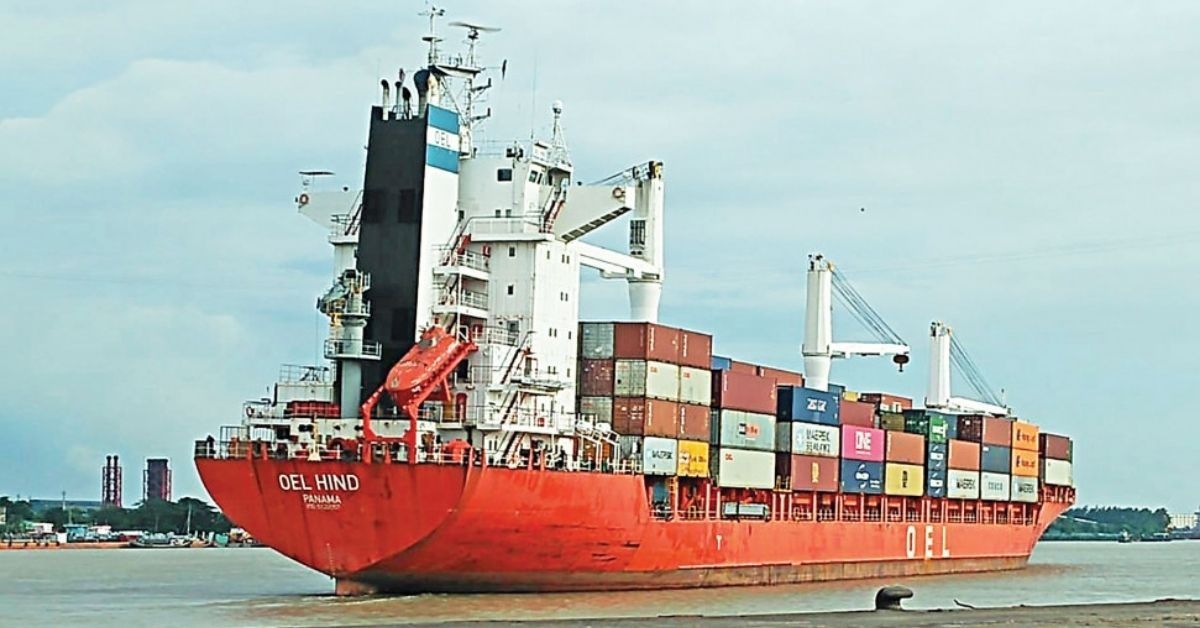Thordon Bearings is supplying its grease-free, self-lubricating ThorPlas-Blue bearing material to a novel containerized wind propulsion system designed to reduce fuel consumption and fossil fuel emissions across all commercial ship types.
The rigid sail system – developed by entrepreneurs Miles Keeney-Ritchie and Satchel Douglas, co-founders of Boston, Massachusetts, U.S.A.-based start-up Aloft Systems – is a rigid aluminum and composite airfoil housed in a 16m (53ft) shipping container that deploys automatically when the wind is sufficient to propel the vessel along.
Four ThorPlas-Blue bearings were machined and installed on a ¼ scale prototype to allow the sails to fold, rotate 360 degrees and pivot to optimize wind conditions. Thordon will supply the material to full-scale units once the entrepreneurs have partnered with a shipowner with whom to trial the system.
Aloft Systems’ Head of Engineering Satchel Douglas said: “We contacted a number of bearing manufacturers, but decided on the Thordon material as it’s as robust and low maintenance as you can get. We needed a fit-and-forget solution capable of withstanding high loads and pressures. And with ThorPlas-Blue there’s no maintenance, no grease, no corrosion. It was exactly what we were looking for.”
Jason Perry, Thordon Bearings’ Regional Manager – North America, said: “Aloft Systems aligns completely with our mission statement and ethos on environmental sustainability, so we are delighted to be part of this innovative and important project from the outset. The flat-out ingenuity of something like this has the potential to get the entire global shipping industry moving to wind power. Aloft has hit the sweet spot.”
At full scale, two Aloft sail units, each containing a pair of 15m (49.2ft) long, 3m (9.8ft) wide folding sails, can reduce fuel consumption and emissions by at least 6%. Depending on vessel size and configuration more units could increase the fuel savings.
The sails tower 18.3m (60ft) above deck when fully extended.
“The goal is not to replace the ship’s existing propulsion system, rather reduce the reliance on fossil fuels and help shipowners meet their emissions targets without taking vessels out of service to do so,” said CEO Keeney-Ritchie.
“The beauty of it, is that vessel owners can change the number of units on their vessels for each voyage to optimally balance fuel savings with the cargo requirement. It’s not a fixed installation, the sails can be moved from ship to ship.”
While wind propulsion technology is maturing, the industry cannot wait and requires a system today that can be easily installed and dropped into existing vessels to meet the gamut of emissions legislation.
The modular, autonomous high thrust propulsion system Aloft Systems has designed does just that. It can be easily lifted on to the deck of any vessel without the need for structural modifications, pipework, wiring, or drydocking.
“If shipowners want to make a difference right now, if they want to save fuel and reduce CO2 emissions right now, then it is wind power that’s going to get them there fast and more cost effectively than any other form of renewable propulsion,” said Keeney-Ritchie. “We’re designing for a 25-year life span, with an ROI directly related to the cost of fuel we save. Where our solution stands apart is the installation cost will be essentially nothing whereas the installation cost for other systems can be the almost as much as the unit itself (so nearly doubling the effective cost).”
Craig Carter, Thordon Bearings’ VP Business Development, furthered: “As a member of the International Wind Ship Association (IWSA), we are keen to support new developments in sustainable propulsion technology. Wind is currently the only zero-emission means of propulsion and Aloft Systems has found a way of making that energy available for all vessels.” Having successfully demonstrated the technology on land with the ¼ scale prototype, Aloft Systems is now actively engaging with ship operators to trial a full-scale version on an ocean-going pilot vessel.






